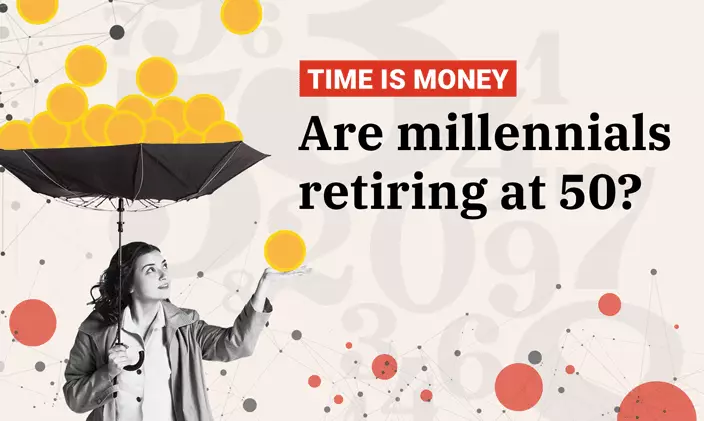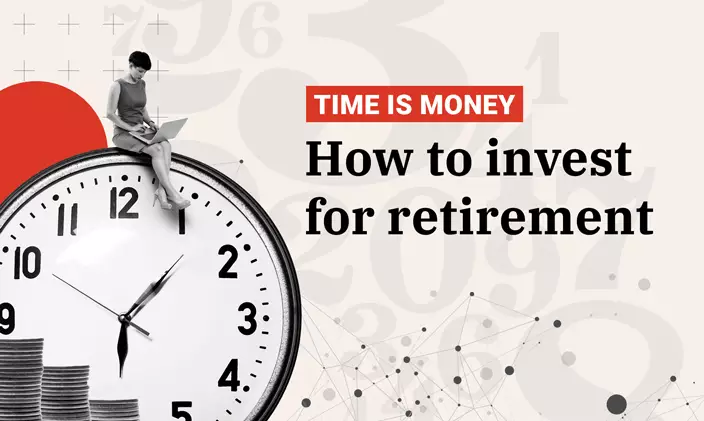Are millennials retiring at 50? (And what you can learn from them)
This article has been vetted by ∆fl…´ ”∆µ's editorial advisory committee.Ã˝
Read more about our editorial process.
Reviewed byÃ˝Jessica Roper, MBA, Director of Career Services.
At a glance
- Certain millennials are spearheading a movement to retire early by leveraging some version of FIRE: financial independence, retire early.
- While early retirement is not feasible for most people, the practices behind the goal, like aggressive savings, wise investing and frugal living, offer real benefits to many.
- “Finfluencers,” or “financial influencers,” have begun to emerge on social media and even financial platforms as a means of educating and impacting other potential investors, although the credentials and motivations of such influencers can be opaque and should be researched by the consumer.
- Looking for more financial news?Ã˝Check out our blog!
Millennials and retirement
Millennials have been associated with a lot of things, from avocado toast to an unshakable affinity for hats. But early retirement? For some, yes.
While it sounds great to retire at or around 50, the fact is it’s a tough goal to achieve. It takes planning, high-earning potential and some serious self-discipline when it comes to saving. It also takes savvy (or at least regular) investing.
But millennials have never been a group to let naysayers have the last word. (Witness those hats.) Here, we break down how some millennials are laying the necessary groundwork for living the dream. And for everyone else? (Like those who don‚Äôt have high-paying jobs or who have more financial obligations than disposable income for investing?) Well, there are some lessons to be drawn from this trend that can benefit everyone.Ã˝
Finances on FIRE
This article is not intended to serve as financial advice. All financial decisions, including investments, should be made carefully and potentially with the guidance of a financial planning professional.
The trending movement of early retirement can trace its origins to a 1992 book titled “,” by Vicki Robin and Joe Dominguez. The book reframes expenses in terms of the hours you have to work. How many hours, in other words, does it cost to pay for brunch? (Who else is thinking about avocado toast differently now?)
From this concept arose the financial independence, retire early (FIRE) movement, which basically relies on frugality and, , “extreme savings and investment.” Estimates put savings goals at something like 50% to 70% of one’s salary and then, upon retirement, withdrawing only 3% to 4% annually from your portfolio.
In terms of real numbers, Investopedia.com says the ideal savings goal is 30 times your yearly expenses, or approximately $1 million, which would theoretically last for 30 years of retirement.Ã˝
Ã˝
But using the formula‚Äôs recommended withdrawals of 3 to 4% annually, you‚Äôd have to be able to survive on $30,000 to $40,000 per year, something that‚Äôs increasingly tough to do with inflation, says Chris Conway, director of financial wellness at ∆fl…´ ”∆µ.
(Not to mention that, if you’re retiring early, you’d need to save more than $1 million to last you more than 30 years.)
Conway also points out the importance of having access to your money. “There’s often mention of having a ‘bridge’ account that allows you to withdraw money and that doesn’t have tax implications around withdrawing from retirement accounts or collecting Social Security,” she says. “If you retire at 50, but you can't withdraw until you’re 59½, do you have nine years of expenses in an account you can pull from without penalty? If not, you need to factor that in. So, it's not just the amount you have saved but the access to the money too.”
Admittedly, most people can’t afford to live on 30% to 50% of their income. Mortgages, car payments, groceries — salaries generally go toward these very real expenses. But the idea of living below your means and then making that surplus, however small, go further by investing, that is the takeaway that can be adapted to individual situations to achieve individual goals.
Types of FIRE
Not surprisingly, there are variations on the FIRE approach. High earners with six-figure salaries may save and invest aggressively without living as frugally. Those who earn less may find ways to live more simply and save the rest. There are even people, Investopedia.com notes, who : They use a combination of savings and part-time work to get health insurance while living on a shoestring.
In true millennial fashion, the people living this dream have their own portmanteau: finfluencers.
Whether they post articles or share their portfolio progress on dedicated investment platforms (more on that later), finfluencers are helping drive this bigger movement toward building potentially less wealth for use earlier in life.
But there’s a catch. As with any influencer on social media, finfluencers should be considered with a certain level of skepticism. On the one hand, they can suggest possibilities worth exploring and researching (such as finding ways to earn or save more money), but they’re not always qualified to offer investment advice. In fact, they’re often not qualified at all outside of anecdotal success stories.
As California’s notes, finfluencers “often don’t have the experience or qualifications to guide people on what’s best for them.” They may also neglect to share when a piece of advice is actually sponsored by a company.
But all is not lost. The general idea behind FIRE can be helpful. “Even if you don't plan to retire early, these concepts will help you,” Conway adds. “There may be times you're unemployed, or you may find you have to stop working before you planned to retire. Having the savings gives you more options and hopefully less stress.”
Is it really possible?
So, can most millennials really retire at 50? The short answer is probably not, but there are benefits to adopting this approach.
According to the Federal Reserve’s May 2021 report “,” one in four non-retired Americans lacks any retirement savings. And of the 36% of non-retirees who felt their retirement savings were on track, younger adults were less likely than older adults to be in that group.
A recent article published by paints an even bleaker picture. According to a , 36% of millennials “in a broad range of industries” saved 5% or less of their income.
Those who are part of that 36%, as well as those who are looking to get creative on how to earn and save more, there’s the concept of alternative revenue. For example:
- People of all generations and backgrounds may choose to work a side hustle, like freelancing or running a small business, to earn extra money.
- Another way to increase income is to explore opportunities for passive income, which is earning money with minimal to no effort (think royalties on published work).
- Invest successfully so that your principal (the money you invest) grows over time.
What everyone else can learn from millennials
In some ways, the FIRE method only applies to millennials, Gen Z and those who will follow. Gen Xers and boomers are too late to the game. Of course, those older generations are making their own plans: More than 80% of Americans who are 45 or older .
That’s not to say, however, that the millennial-driven FIRE trend has nothing to offer older Americans. There are some valuable lessons, in fact, to draw from it, such as:
- Saving more means retiring earlier (or just more comfortably). “A key tenet of FIRE is frugal living,” Conway says. “This keeps your expenses lower, which means you can survive on less in retirement. Create a budget and make choices about how you spend your money. Consider other ways to earn money and save that money. Automate your savings so that it becomes a habit. Who doesn’t benefit from these ideas?!”
- Investing allows your savings to grow. “FIRE starts with saving and earning, but investing over time is what allows your money to grow to support you in retirement,” Conway says. “Whether you plan to retire at 50 or 70, investing can help you reach that goal.”
- Don’t be afraid to educate yourself about investment opportunities. There are resources, including other investors, you can learn from.
- Sometimes the goal isn’t retirement but working less or in a less lucrative field. Following your dream career may be possible later in life if you plan ahead by saving and building that investment cushion.
Working, after all, isn’t without its merits. Purpose, mental acuity and, of course, salary are all benefits of employment. Finding the right balance between those three things may be just the ticket to the kind of work that doesn’t feel like work — and that lets you keep on working for as long as you want.

ABOUT THE AUTHOR
Elizabeth Exline has been telling stories ever since she won a writing contest in third grade. She's covered design and architecture, travel, parenting, lifestyle content and a host of other topics for national, regional, local and brand publications. Additionally, she's worked in content development for Marriott International and manuscript development for a variety of authors. Today, if given a free hour and the choice, she'd still prefer to curl up with a good story.





